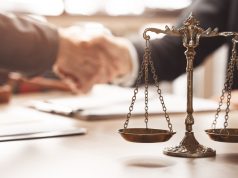
When a serious accident occurs, most people think first about physical injuries—broken bones, concussions, surgeries, and long hospital stays. While these visible wounds are important, the recovery journey is often just as much psychological as it is physical. Survivors frequently face trauma, anxiety, and depression that can linger for months or years after the incident.
In Georgia, where thousands of traffic and workplace accidents happen every year, recognizing the need for therapy after an accident is critical not only for health but also for legal recovery. Courts and insurance companies increasingly acknowledge that emotional harm deserves compensation, too.
The Invisible Scars of Accidents
According to the American Psychological Association, post-traumatic stress disorder (PTSD) affects many accident survivors. Symptoms include flashbacks, nightmares, and heightened anxiety that interfere with everyday life. Even a seemingly “minor” collision can cause lasting psychological harm, particularly if the victim experiences guilt, fear of driving, or social withdrawal.
Emotional impacts often include:
- Depression – feelings of hopelessness, low energy, or withdrawal from loved ones.
- Anxiety disorders – panic attacks, hyper-vigilance, or difficulty concentrating.
- Sleep disturbances – insomnia and recurring nightmares.
- Cognitive impacts – memory problems and reduced ability to focus.
These symptoms don’t just disappear on their own. Left untreated, they can worsen and lead to long-term disability.
Why Therapy Matters
Therapy is often just as important as physical rehabilitation after an accident. It gives survivors tools to process trauma, build coping mechanisms, and restore a sense of safety.
The National Institute of Mental Health highlights early intervention as critical to preventing chronic PTSD. Cognitive behavioral therapy (CBT), exposure therapy, and group counseling are proven methods that help victims regain control of their lives.
Therapy also benefits families. Loved ones often struggle to understand mood changes or avoidance behaviors after an accident. With professional guidance, families can rebuild communication and offer more effective support.
The Legal Side: Can Therapy Costs Be Compensated?
Under Georgia law, personal injury compensation goes beyond medical bills and lost wages. Victims may also be eligible for non-economic damages such as emotional distress, pain and suffering, and loss of enjoyment of life.
That means therapy, psychiatric medication, and other mental health treatments can be factored into a claim—if properly documented. Courts recognize that trauma has measurable costs, and insurance companies may be required to pay for ongoing counseling, especially if a medical professional connects the need directly to the accident.
However, proving these damages requires careful attention:
- Medical Records: Victims should keep detailed documentation from therapists, psychologists, or psychiatrists.
- Expert Testimony: Mental health professionals may testify about the severity and long-term effects of trauma.
- Daily Journals: Personal notes on symptoms, emotional struggles, and setbacks can strengthen a claim.
Without these, victims risk having their emotional suffering undervalued or dismissed.
Barriers to Getting Help
Unfortunately, many survivors don’t seek therapy. Common reasons include:
- Stigma around mental health treatment.
- Financial worries about ongoing counseling.
- Lack of awareness that therapy costs can be included in a legal claim.
This creates a dangerous cycle: untreated trauma worsens over time, while unclaimed damages leave victims struggling to cover therapy bills.
Building a Strong Recovery
A holistic recovery plan should include both physical and psychological treatment. Victims are encouraged to:
- Seek medical attention immediately – both for visible injuries and emotional symptoms.
- Follow through with therapy – consistency is key to long-term healing.
- Document everything – bills, journals, and professional diagnoses.
- Consult an attorney – to ensure mental health damages are fully considered in a claim.
By treating psychological recovery as equally important to physical healing, survivors increase both their well-being and the strength of their legal case.
Conclusion: Protecting Your Health and Your Rights
Accidents leave more than broken bones behind—they leave invisible wounds that deserve recognition and treatment. Therapy is not a luxury; it’s an essential part of recovery. And under Georgia law, those costs may be compensable when tied directly to an accident.
No one should face the burden of trauma alone, especially while navigating medical bills and insurance companies. If you or someone you love is struggling after an accident, speaking with a skilled personal injury lawyer can ensure that both your physical and emotional recovery are given the value they deserve. Contact Davies Hothem today!







